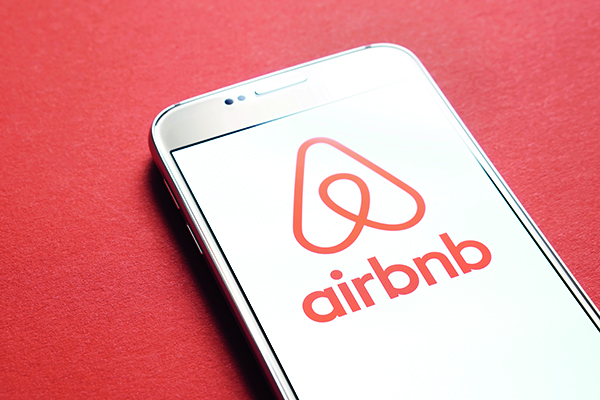
Airbnb has called on banks and building societies to update their “rigid” mortgage policies that prevent borrowers from sharing their property on rental platforms to boost their income.
New research from Airbnb reveals that over three-quarters of homeowners (77%) are thinking about ways to supplement their income to combat the rise in mortgage rates.
Nearly half of the homeowners (47%) would list their home on a short-term lettings platform in order to cover the increase in monthly payments, but 40% of borrowers say their mortgage provider won’t allow them to rent out their home or spare room on Airbnb.
Airbnb general manager for Northern Europe Amanda Cupples says: “With mortgage rates and inflation continuing to climb in the UK, British families are turning to hosting on Airbnb as a tool to afford rising living costs. In normal times, this activity, which for most hosts would be for no more than a couple days a month, offers flexibility and a source of additional income but in the current climate, it could be a lifeline.”
Cupples explains: “We want to work with lenders and show them the benefits of home sharing so they can update their policies and let homeowners make their homes work for them.”
Currently, Metro Bank and Barclays are two of the few lenders that allow borrowers to share their home on rental platforms for up to 90 nights per year, but other lenders only allow it for second homes and buy-to-let (BTL) properties or do not provide enough information on what activity is allowed.
The government’s Rent a Room scheme allows homeowners to earn £7,500 of rent tax-free each year by taking in a lodger.
However, Airbnb argues that there is a lack of clarity for homeowners about whether their mortgage provider allows this activity and in which scenarios.
Some lenders require that borrowers file paperwork with a fee to secure permission and in only specific circumstances, such as if they are in the Armed Forces and currently serving away from home.
Airbnb’s call to the government comes as the cost of living crisis and rising interest rates put pressure on families across the country.
Data from the Bank of England (BoE) shows more than two million households with fixed-term mortgages are due to remortgage by the end of 2024.
All Party Parliamentary Group on Financial Markets and Services chair Bim Afolami MP explains: “Allowing homeowners the flexibility to occasionally let out their property as a means of earning some extra income is a clear win for mortgage providers and could provide an important lifeline to those who might be struggling in these difficult economic times.”
“Banks and building societies can follow the example of lenders who are offering flexibility to their customers and allowing them to take up the benefits of homesharing.”
Meanwhile, a survey of 2,000 UK adults by Together has found that 24% of Brits are considering becoming holiday let owners, a figure which rises to 51% of 18 to 34-year-olds.
The biggest motivator is potential profits, with nearly half (48%) saying they would consider short-term holiday letting as a way of earning extra money.
This is even more important to those aged 55 and over, with two in three (65%) driven by an additional source of income.
Together commercial chief executive Marc Goldberg says: “Staycations have been in extreme demand – with bookings reaching all-time highs this year – and their popularity looks like it’s here for the foreseeable future.”
“Whether families wish to stay in the UK to control costs, avoid getting caught up in potential airport travel issues, or just want to experience the UK’s beautiful countryside, there are lots of new holiday letting opportunities cropping up as more people recognise the income benefits of becoming a full or part-time host.”
“Mortgage applications for holiday let properties are not always available from mainstream lenders, so it’s worth potential holiday let owners talking to specialist lenders.”



